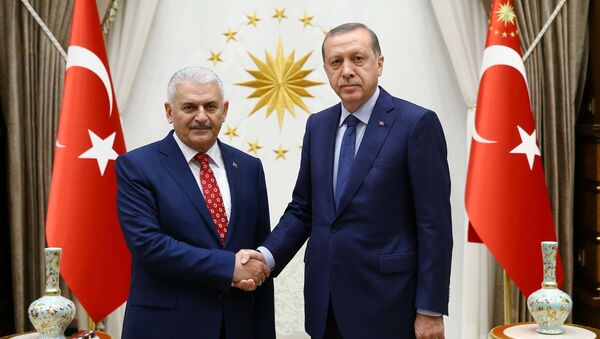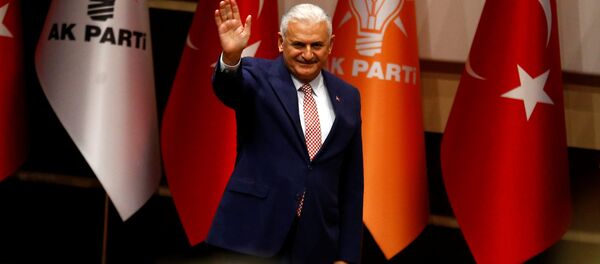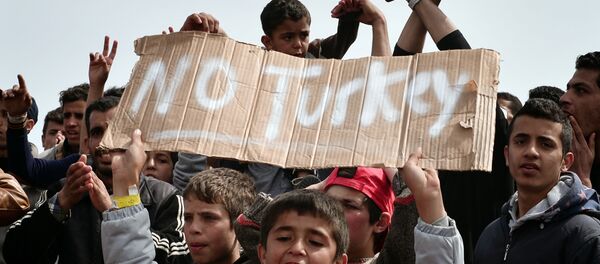Turkish President Recep Tayyip Erdogan has appointed longtime ally Binali Yildirim to the post of Prime Minister, following the resignation of Ahmet Davutoglu earlier this month due to their political differences.
The appointment of Yildirim allows Erdogan to push through reforms which overhaul the Turkish constitution and extend his presidential powers by consolidating his grip on the Justice and Development (AKP) party, Thomas Diez, Professor of Political Science and International Relations at the Institute for Political Science of the University of Tübingen, told Radio Sputnik.
"Even five or six years back, the AKP was a much more coalistic force, if we go back to the 2000s the AKP was really a mixture of more liberal, more conservative, more religious people and all of them wanted to break up the Turkish state apparatus at the time, which was very much dominated by a particular ideology of Kemalism and the marginalization of large parts of the population," he explained.
Diez said that one method to carry this out is the lifting of the immunity of parliamentarians, which is being used to prosecute members of the opposition pro-Kurdish Peoples' Democratic Party (HDP), which remains critical of the government, in order to force them to withdraw from politics.
President Erdogan is taking a "confrontational course" in relations with so-called allies in the EU and US, because he thinks Turkey doesn't need them, Diez explained.
"Erdogan is of the view that they don't need the EU, they don't need the US any more either to some extent."
"On the other hand of course, both sides are so dependent on each other. Turkey is, to a large extent, dependent on the European market for its goods, (and) there are lots of Turkish citizens, or former Turkish citizens, in EU member states."
"I don't think the visa agreement will be implemented so easily, but at the same time I don't think there will be a complete falling apart of relations, partly because I think at some point there must be somebody even in Erdogan's government that will tell him that economically that would be a disaster for Turkey," Diez said.
"Of course, we also have to say that some of the Turkish developments of the past month, sparked by President Erdogan, have been unexpected by all of us experts, so I wouldn't completely rule out that option either, I just can't see why that would be a sensible course of action."






